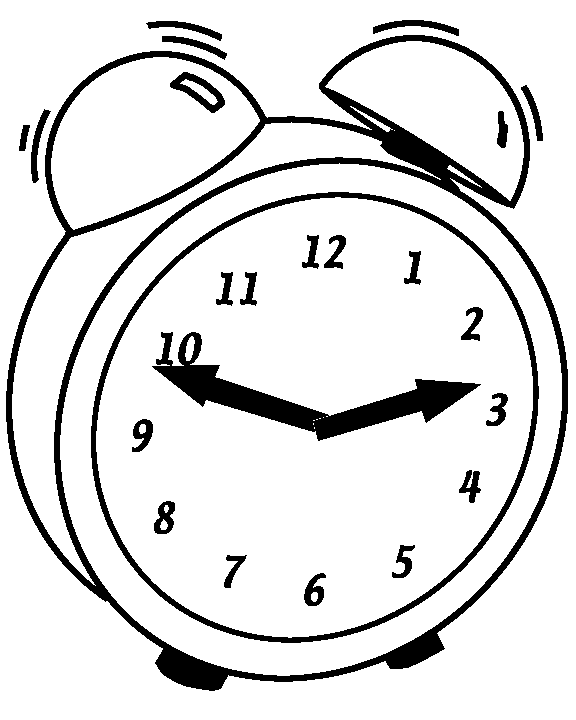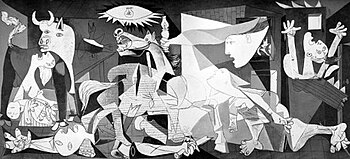In
my American Studies class we discussed the possibility of New Trier using an
online grading system. A heated discussion soon followed a simple question of “what
do you think about New Trier considering making an online grading system?” At
least 20 hands shot up into the air, everyone had something to say either for
or against it. I left the class feeling energized by my complete disagreement
for my fellow classmates who were opposed to online grades, and proud of my
peers who were for it. I planned on writing a persuasive letter to the
principal, possibly the student government, and anyone else who may listen to
what I have to say. Also during class, our teachers posed the question “How do
you go around accomplishing your goals?” If you have not figured it out yet, I
never wrote my letter about the online grading system. Most likely, I never
will write that letter. Also very likely, is that none of my classmates who
were so involved in the debate will do anything to voice their opinions outside
of the classroom.
But
why not? I cannot know for sure, but I do have a few ideas of why I am probably
not going to follow through with my letter, and these reasons could very well
be the same as my classmates. First off, five minutes after leaving 2nd
period, my mind was taken over by other thoughts, namely, geoscience. My brain
was consumed by other thoughts so quickly after I left, that I never even had a
chance to remind myself to write that letter, and I quickly forgot until I
began to think of blog post ideas. Secondly, I will put this off for forever.
It is the last week of school before winter break, which is always a hectic,
busy week. I have dance every day after school. I will be missing one day of
school this week already; I do not have extra time to fit in making a nice
letter. The list of excuses goes on and on. Pushing off writing the letter for
another week will make me even less inclined to write it later, and by the time
I reconsider writing it, I will convince myself that I am too late.
 I
am not alone in putting off things I care about though. Currently in American
Studies, we are wrapping up The Narrative
of the Life of Frederick Douglass. In it, Frederick Douglass waits over 10
years to reach the north and freedom and leave behind his slave life. You might
say that he did not leave his life as a slave because he did not want to be
free enough. If you have read the narrative, then you know that is clearly not
true – he wanted very much to be free. For years, Douglass made up excuses of
why to wait to run away, but the whole time he pushed off trying for freedom,
he had to live another day as a slave
I
am not alone in putting off things I care about though. Currently in American
Studies, we are wrapping up The Narrative
of the Life of Frederick Douglass. In it, Frederick Douglass waits over 10
years to reach the north and freedom and leave behind his slave life. You might
say that he did not leave his life as a slave because he did not want to be
free enough. If you have read the narrative, then you know that is clearly not
true – he wanted very much to be free. For years, Douglass made up excuses of
why to wait to run away, but the whole time he pushed off trying for freedom,
he had to live another day as a slave
Clearly I have not learned from history to not wait for tomorrow to do what you should do today- YETl But back to the unwritten letter. .If you do however feel the impetus to write that letter that you still have not written, here is the principal's email: dohrert@newtrier.k12.il.us.
You may at first think: why did this girl just give me the principal of New Trier's email address? Here's why: I believe people are less likely to go out on their own and do their own research, so I must tell you what to do. Now this is not me calling Americans lazy, this is just my personal belief that everyone needs a little nudge to send them in the right direction. Maybe I was not given a big enough nudge to write that letter. Perhaps if writing the letter was mandatory, that would have been a big enough nudge.
Maybe you can help me figure out why I have not written that letter yet, so I am going to ask you: why do we always find the time to
not do what we want? Is it just because we have not been given the tools to accomplish what we intended? How can we do what we say we will?
 Is America a
land of opportunity for all though? In my American Studies class, we
recently finished reading A Narrative of the Life of Frederick Douglass.
Ironically enough, I sometimes believe that Douglass too, a slave from his
birth in 1818 until 1838, also believed America was a land of opportunity
despite being treated harshly and put down by his white slave owners for so
long. On page 38, Douglass says that his worst master of all time, Mr. Covey,
"succeeded in breaking me. I was broken in body, soul, and spirit".
Douglass was still American just like his slave owners even though he was
black, but from his description of being mentally defeated by Mr. Covey, it
does not seem like he felt America was the land of opportunity.
Is America a
land of opportunity for all though? In my American Studies class, we
recently finished reading A Narrative of the Life of Frederick Douglass.
Ironically enough, I sometimes believe that Douglass too, a slave from his
birth in 1818 until 1838, also believed America was a land of opportunity
despite being treated harshly and put down by his white slave owners for so
long. On page 38, Douglass says that his worst master of all time, Mr. Covey,
"succeeded in breaking me. I was broken in body, soul, and spirit".
Douglass was still American just like his slave owners even though he was
black, but from his description of being mentally defeated by Mr. Covey, it
does not seem like he felt America was the land of opportunity. 










